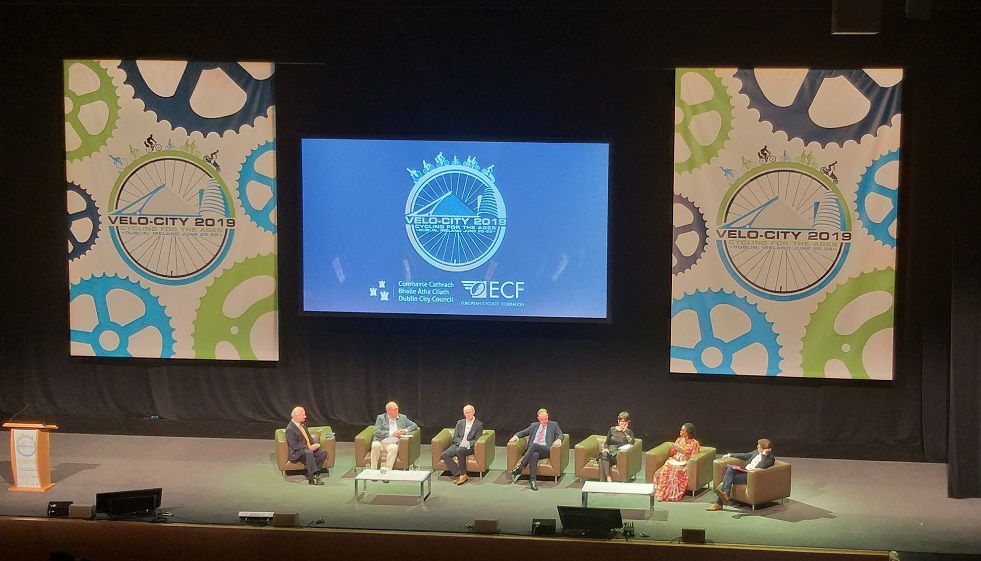
Velo-city 2019 Dublin day 1: The City of the Future
The first day of Velo-city 2019 Dublin started with an inspiring discussion about the city of the future, where innovation and smart tech approaches to urban life and mobility are expected to play a major role.
Henk Swarttouw, Vice President of the European Cyclists' Federation, kicked off and moderated the debate on the city of the future.
A discussion of how the city of the future could and should look like was the centrepiece of this session. Staring with autonomous cars and ending with flying autonomous pods, the points being raised went through all the new mobility solutions taking the cities of today by storm.
Experts from local governments, civil society, and the private sector took part in this panel discussion to talk about whether the developments of today are guiding us to the desired city of the future:
Klaus Bondam, CEO of Cyklistforbundet (the Danish Cyclists' Federation) spoke strongly on the issue of disruption and innovation: “We are letting the last 50 years of technological developments define the city of the future and that shouldn't be the case”. He also stated that low tech smart solutions are needed and can still be extremely useful. Urban road infrastructure to make cycling safer is the perfect example.
Owen Keegan, Chief Executive of Dublin City Council, reinforced Klaus' concept: “We’ve lost our way with the private car over the past 50 years. I hope we find our way again. There’s great potential in the future but there's also great risk”.
Amanda Ngabirano, lecturing at the Makerere University in Kampala and Vice President of the World Cycling Alliance, is an urban and regional planner. She made her view clear when she stated the top 3 priorities we should focus on when designing the city (of the future): People, People and People. "The city of the future needs to be creative, innovative, inclusive. It should be a city for everyone, not only for the the restless youth. There is still a lot to do to integrate and harmonise what was done in the city of the past and that should pop up in the future in a special way”.
Bronwen Thornton, Walk21 Foundation, is an advocate and expert on walking and walkable communities. “Here’s a secret: we’ll still be walking in the city of the future. The bicycle is a testament that we’ll still be riding”. She strongly advocated for useful technologies but also for those not smart but still useful solutions: “The drive to technology won’t solve everything and we’ll have to bring the balance in. I think a smart city is a human city”.
John McCarthy, the European Intelligent Mobility leader in ARUP, spoke about the heavy competition for space currently running in our cities: “The city of the future has to be liable, it needs to create an atmosphere where people want to be”.
And finally, Philippe Crist, Advisor for Innovation and Foresight for the International Transport Forum at the OECD, gave a brilliant vision of what this city of the future will look like. "There are challenges to fulfill our potential as humans and these challenges are unevenly spread throughout our cities in the world. In order to address these challenges we need to address what the city of the future holds for us”. And once again the point on inclusivity was raised as something to look out for: “Whose city are we thinking of? Is it a city focusing on wealthy individuals vs the marginalised? There is one constant in urban development that will always remain at the centre of the discussion. It is us. It is what we embody as humans".
Regions:
Network/Project Involved:
Topics:
Contact the author
Recent news!
Upcoming events
Contact Us
Avenue des Arts, 7-8
Postal address: Rue de la Charité, 22
1210 Brussels, Belgium









